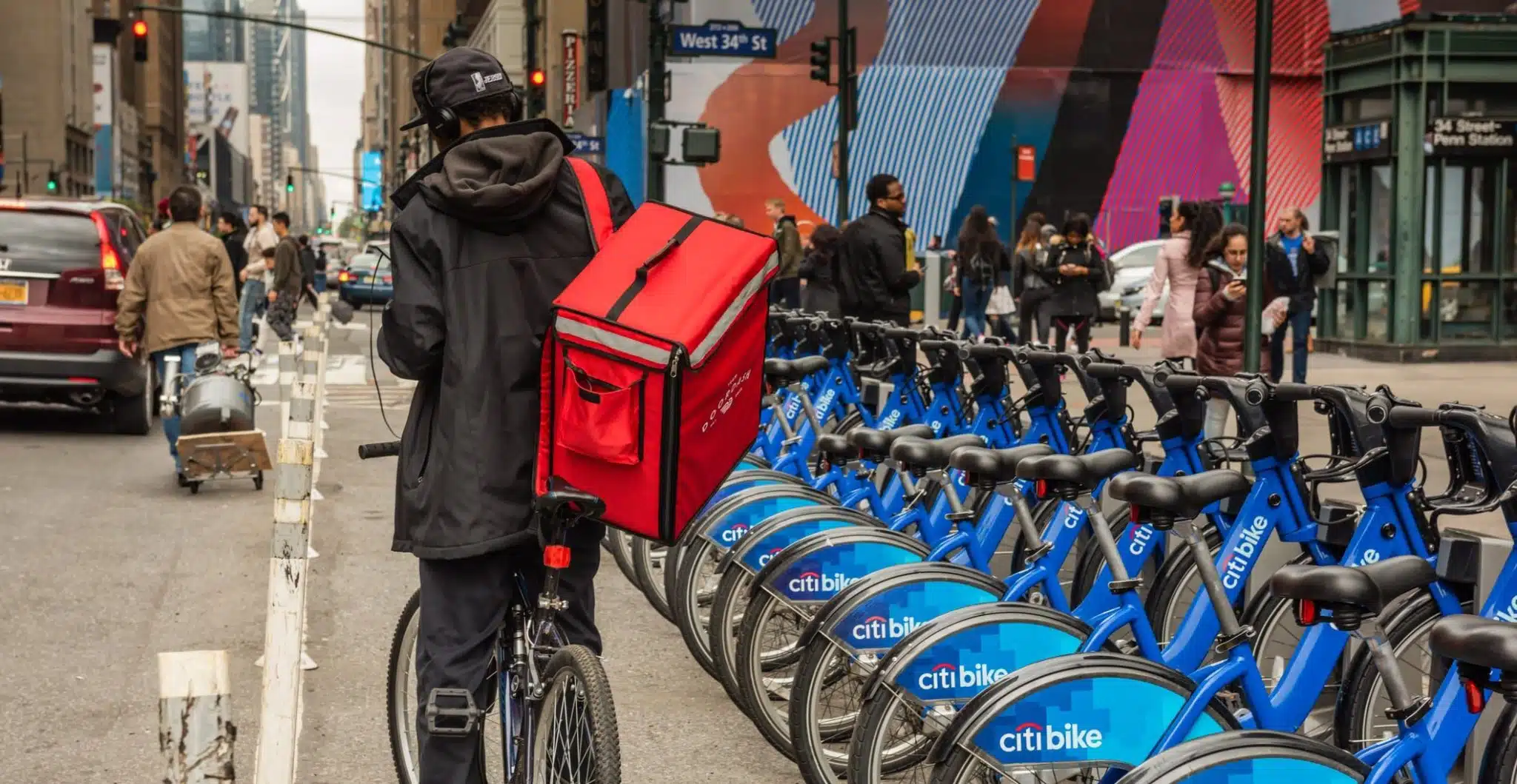Uber, DoorDash, and Grubhub are suing New York City to block a ruling that mandates paying their delivery partners nearly $18 per hour.
Each company has filed motions for temporary restraining orders against the measure, which is set to take effect on July 12.
Currently, app companies compensate drivers per delivery rather than per hour.
Read More: Twitter sued for dodging arbitration with ex-employees fired by Musk
However, the New York City Department of Consumer and Worker Protection argues this pay structure results in an average hourly wage of $7.09 before tips.
Last month, the agency announced a new minimum wage rule, gradually increasing pay for delivery workers to nearly $20 per hour by 2025.
DoorDash and Grubhub jointly filed a lawsuit claiming the rule is based on “inherently biased and unreliable survey data” and would harm delivery drivers rather than benefit them.
The companies claim implementing the rule would increase costs to consumers, leading to fewer customers and potential damage to their reputation within the industry.
Read More: Grubhub lays off 400 corporate staff
In a separate lawsuit, Uber said the higher minimum wage would adversely affect local restaurants, as increased costs could discourage customers from placing orders.
Delivery app makers have long resisted regulation of their operations.
DoorDash and Grubhub claim the rule relies on flawed data obtained from a survey of delivery workers.
They allege the survey had a flawed methodology, with respondents being explicitly told that it was intended to raise delivery workers’ pay, and “correct” answers were suggested.
Need Career Advice? Get employment skills advice at all levels of your career
Labor advocacy groups, like the Worker’s Justice Project, criticized the suits, considering them detrimental to workers struggling to survive in a city facing an affordability crisis.
Grubhub has indicated that it has been engaging with the city for several months to explore ways to support its drivers, including alternative payment methods.
One concern raised by app makers is the requirement to monitor the time spent by drivers on the app, excluding the time spent on actual deliveries.
At the time of reporting, Uber and the New York City Department of Consumer and Worker Protection have not responded to requests for comment.




